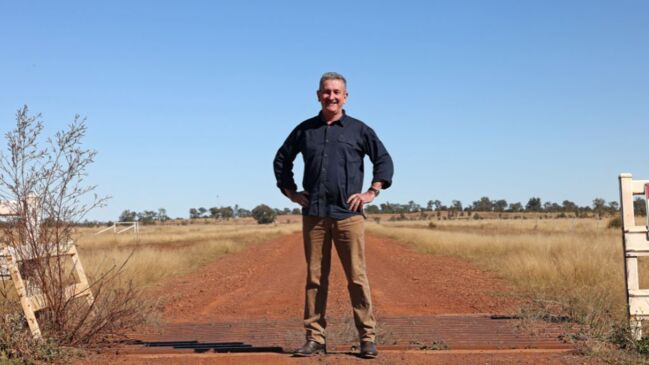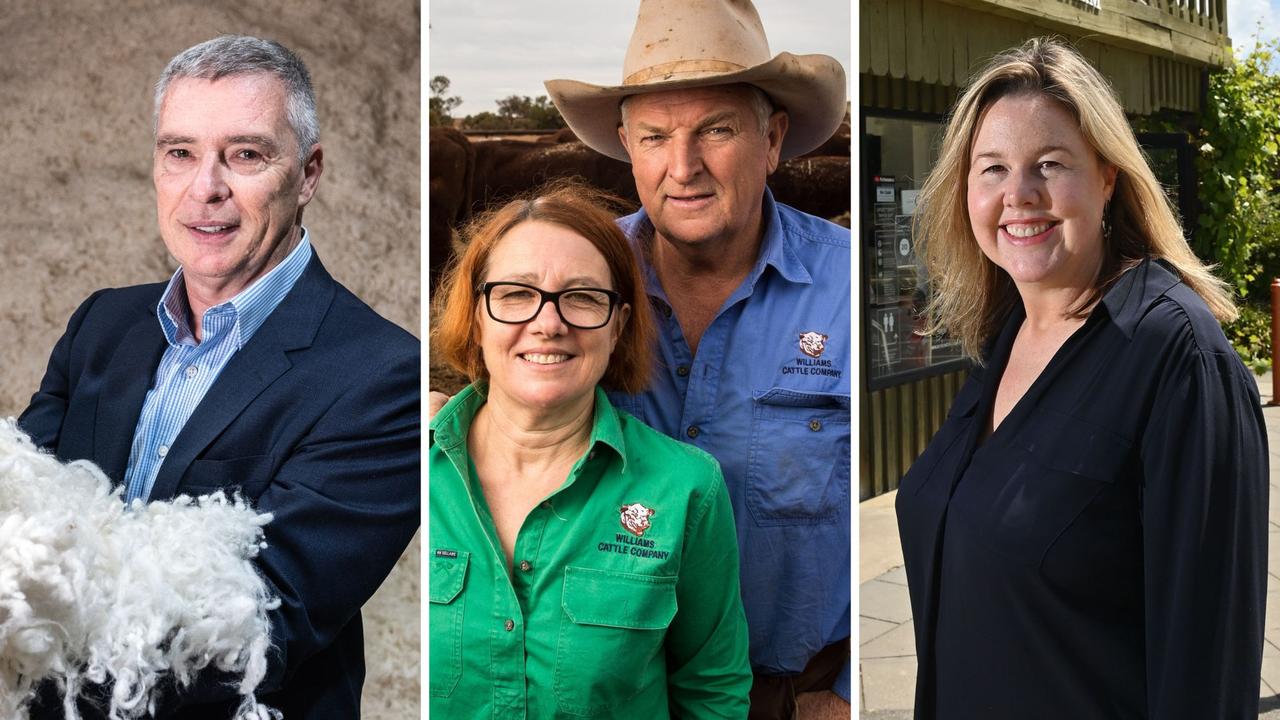Bush Summit 2024: Regional Australians reveal biggest concerns
South Australians living in the bush have revealed their biggest concerns, many of which reflect those of their city-slicking cousins.

Bush Summit
Don't miss out on the headlines from Bush Summit. Followed categories will be added to My News.
South Australians living in the bush are struggling with cost of living and housing affordability as much as their city counterparts, and desperately want the lack of health services and rampant crime addressed.
Despite living in traditionally cheaper areas, News Corp Australia’s exclusive Mood of the Bush survey reveals three-quarters of regional South Australians believe the spiralling cost of living is their biggest concern, and almost one-third believe housing is a critical issue.
This story is part of News Corp Australia’s Bush Summit series celebrating rural and regional Australia and championing the issues that matter most to those living in the bush. You can read all our coverage here
An alarming 49 per cent of regional South Australians surveyed by SEC Newgate Australia say they were experiencing financial difficulties – higher than the 44 per cent in metropolitan SA.
However, almost 80 per cent of regional South Australians rated their quality of life as good-to-excellent, a rise from just 65 per cent two years ago.
This was in contrast to city folk, where the good-to-excellent rating dropped from 82 per cent to 75 per cent in the same period.
Regional Capitals Australia chair Kylie King said it was no surprise that regional dwellers are happier than their city counterparts with more laid-back environments and easier commutes being well-known drawcards.

“Having been someone who’s lived in a capital city who has moved to the regions, I think it’s that laid-back atmosphere, dealing with less congestion and busyness that you often encounter in the major cities that seem to be growing at such a rapid rate and it can be overwhelming,” she said.
“I hear from my regional friends and networks it’s that connectedness we still have, that ability to still belong in service clubs, to commit behind fundraisers in your communities or be actively involved in sporting clubs and schools.”
However, lack of affordable housing had left communities distressed and lower-than-expected population growth meant key skills were lacking.
“Population growth in our regional cities haven’t kept up with what the forecasters in government potentially had expected,” Ms King said.
The survey included 1244 respondents and found 75 per cent of regional Australians believed reducing cost increases for household bills and other essential expenses was extremely important, compared to 73 per cent in metro areas.
Some 58 per cent of regional Australians believed the availability of rental housing was extremely important – in line with metropolitan respondents. Aussies in the bush also wanted welfare payments and pensions increased, while the issue was not in the top-10 for those surveyed in the city.
The study found 74 per cent of people – unprompted – said cost of living was the issue of most concern, and four-out-of-10 of those living in regional Australia said they were experiencing financial difficulties.
In SA, household bills and other essential expenses topped the list of priorities of regional respondents with 78 per cent nominating it as “extremely important,” followed by investing to ensure quality, affordable healthcare (72 per cent) and affordable rental housing (67 per cent).
These were higher ratings than metropolitan respondents, in particular affordable rental housing which came in as the fifth highest priority in the city on 56 per cent, behind strengthening the economy and strengthening the response to violence against women.
Ms King said the federal government must ensure migration to regional communities brings skills to meet the challenges in the construction sector.
“We do recognise that the rental market is particularly tight due to the growth in our regional cities,” she said. She cited National Skills Commission research, which found of the 77 health professional occupations assessed for the skills priority list in 2021, 29 per cent of those essential occupations were found to be in shortage.
“Again, you’ve got that key worker housing issue, needing to find specialists and key workers into regions, the health problems links to the housing problems, and links to the migration issues and we hear the angst that people are feeling,” she said.
Property Council of Australia’s Jess Caire said regional areas can become part of a vicious housing cycle, with many of the underlying factors that exacerbated affordability concerns felt more heavily in the regions.
“Access to trades and materials is problematic in remote communities and this can have a flow-on impact on the cost and time of building new housing,” Ms Caire said.

“Underemployment leads to a lack of housing investment which in turn restricts a regional area’s ability to attract new skills and workers as there is simply nowhere for them to live.”
Ms Caire said rental markets in regional and remote areas can face volatility due to a lack of housing supply, leaving these areas vulnerable if there is a sudden surge in demand for housing.
But the lack of affordable housing had left communities distressed and lower-than expected population growth meant key skills were lacking.
Barossa Council Mayor Michael Lange said cost-of-living pressures were biting and hurting small business and people were becoming “very wise’’ in how they spend money which, in turn, was making life difficult for some small businesses.

“Instead of joining your mates at the pub, now you sort of start to say, ‘Well, we might pop around to their place’,’’ he said.
He noted finding housing in the regions was difficult.
“There is a housing shortage. There’s no question about that,” he said.
“People who are working in our regions just can’t find affordable housing or housing that suits them.’’
In SA, by far the most common reason to move to a regional area was for a more relaxed, peaceful or quieter life.
Cost of living was also a key factor for many, as was having more space, being closer to family and for an improved lifestyle or quality of life.
More Coverage
Originally published as Bush Summit 2024: Regional Australians reveal biggest concerns





